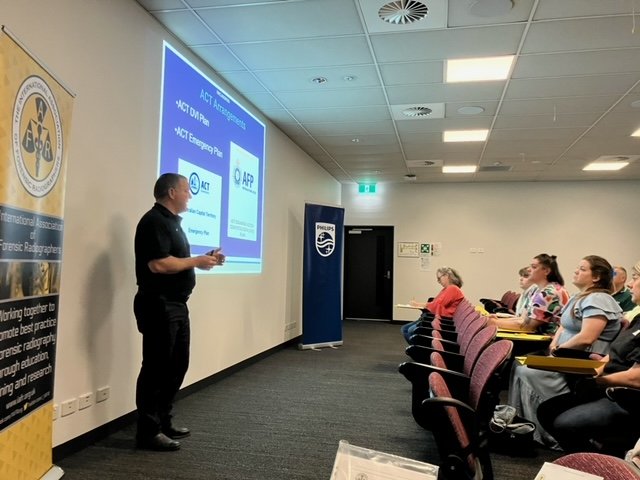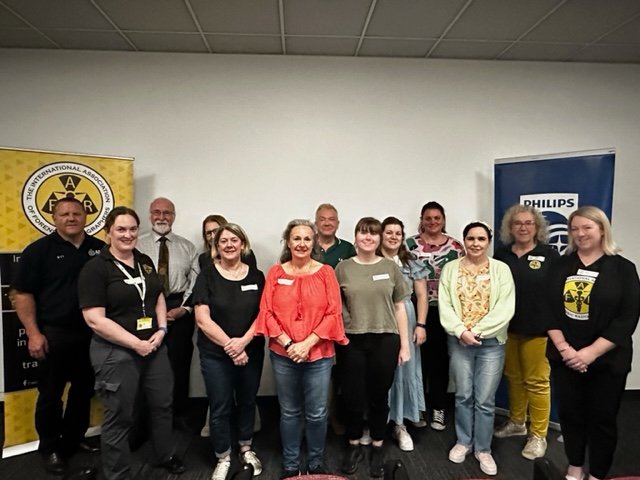Written by Carlie Nancarrow, IAFR Member and CPD-Coordinator of the ANZ Branch
Participating in the DVI for radiographers workshop has been on my wish list for many years. I was set to attend the workshop back in 2018 but unfortunately ill health prevented me from flying. Finally, post COVID madness, another workshop was scheduled and I had to be a part of it. I have previously lived in Melbourne, so I organised to stay with a radiographer friend of mine for a couple of nights and we would attend the practical workshop together. A welcomed mini get away for a mum of a toddler.
The course was split up into an online component and the practical workshop. The online course work consisted of videos, voice over slide shows and quizzes. I would do an hour here and there while my little one slept, until I had finished this component. The content was interesting and easy to follow which I appreciated. I was mindful to start and finish this component in time for the practical workshop as last minute isn’t an easy option for me these days. The faces and names of the presenters in the content were familiar from the IAFR website and it was great to learn from their experience and knowledge.

The practical workshop was conducted at Royal Melbourne Hospital. This was a very central location that was easy to get to and from, driving or catching public transport. The day was split up into a morning of presentations by guest speakers followed by an afternoon of hands on DVI imaging techniques. The guest speakers were truly amazing and I could have easily listened to them all day. We first heard from the Victorian Coroner, Katherine Lorenz. She is a relaxed and confident presenter who gave us insight into the coronial inquiry process. Secondly, Inspector Rod Anderson, from the AFP, spoke about the role of the police in DVI and how radiographers fit in to the process. Professor Peter Ellis followed with the Forensic Pathologist’s perspective of disaster planning. Lastly Dr Jodie Leditschke, Mortuary Manager at VIFM, talked about DVI in Australia and practicalities behind DVI events. I felt very lucky to be able to learn and gain understanding from such experts in the field.
After lunch we started by looking at forensic fluoroscopy techniques with the workshop facilitators, Edel Doyle, Denise Elliot and Rebecca McDougal. We took turns in screening, documenting and overseeing the process. We talked about trouble shooting and the array of scenarios that may arise on deployment. We also had practice with an x-ray unit and CT scanner. We had to overcome challenges and learn how we would document findings appropriately.
It was a long day full of learning but extremely enjoyable. To finish off, we headed to dinner for a debrief and catch up. It was lovely to be in company of radiographers with common interests. I look forward to future courses with IAFR.


